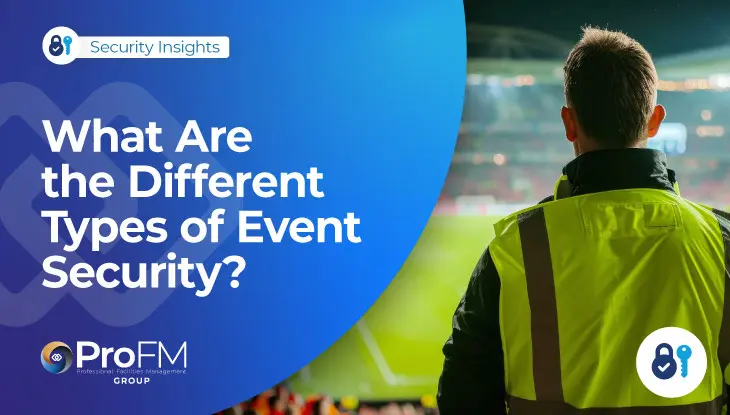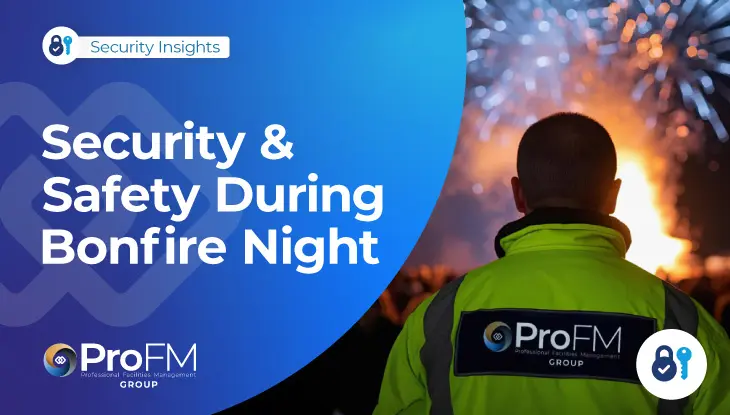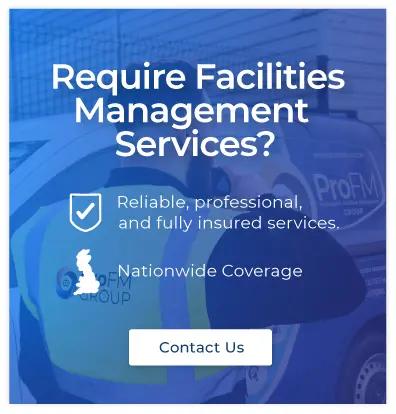Security for an event is arguably one of the most important considerations. However, the question of “What is event security?” isn’t an easy one to answer. While we’re often swept away in the excitement of special guests or a packed-out schedule, leaving your event security planning too late or – worse – forgetting it altogether can spell disaster for your guests.
As the UK’s leader in bespoke event security services, we’re on hand to offer a comprehensive event security checklist to go through, as well as explain why you’ll need to consider those aspects. We’ll also explore insider tips and tricks to ensure your event runs smoothly, regardless of what you have planned.
What Is Event Security?
Event security refers to the processes, professionals, and systems in place to ensure the safety of eventgoers, performers, and staff members. It encompasses a range of different areas, from physical security measures such as security guards and sniffer dogs, to proper planning, health and safety regulations and access control.
However, while those are the general principles of good event safety management, they’ll often change depending on your unique celebration.
One of the main things we emphasise here at ProFM is that no two events are the same, and that means that it’s very rare that the security for those events is the same either. We address that with bespoke solutions and meticulous planning, and that’s an approach we’ve found works exceptionally well.
By using a tailored methodology, we’ve found that we can encompass a far wider range of aspects of event safety and security, from regulatory demands to complex insurance clauses. For us as an event security provider, this allows for a more thorough understanding of what our clients need, and how we can match those rigours.
For event organisers, that means they’re able to centralise their organisation phase when it comes to security, and use one point of contact for:
- Security guards, stewards, supervisors, managers and coordinators
- Barriers, fencing and gates
- Mobile patrolling officers and security personnel
- Risk assessments, site analysis, and planning
- Ingress and egress routes, as well as guidance barriers and signage
- Advanced entrance measures like detection dogs and scanners
- Dedicated protection for staff-only, equipment, storage and staging areas
Of course, certain events will naturally have their own, unique security demands. For instance, a major festival with multiple bars will likely require more licensed officers to provide security, compared to a small event catering to a family-friendly crowd, which might require officers with enhanced DBS clearance.
That leads us to creating your event security checklist and partnering with the right provider to develop those solid foundations.
A 6-Step Event Security Checklist
As part of your event security checklist, begin by mapping out your event, including any expected guest hotspots, such as entrances, exits, and food service areas. You’ll then outline what you’d expect from security staff members (such as crowd management duties or ticket checking), and appropriate legislative and health and safety considerations.
Of course, while a company like ProFM can take all of the event security duties off your hands, there’s still groundwork you can do to ensure you receive everything you’re expecting and more. We’ve broken this down into a comprehensive checklist for event safety and security, which you can find below.
1. Map Out Your Event Layout
Perhaps the most pivotal point to consider in security planning for events is looking at your layout. Here are a few questions you can ask yourself to help start your event security checklist off on the right foot:
- How large an area does your event span? While standardised event security procedures don’t give an exact figure or the number of officers you’d need for your area, it’s a good idea to calculate (or even estimate) how large an area you’ll be covering. This can then give you a good sense of the perimeters, where you’ll expect security personnel to cover, and what potential concerns might arise before they materialise.
- Are there any elevation or terrain changes? A major concern if you’re expecting guests with physical disabilities or difficulties with walking (such as an event aimed at the elderly), it’s crucial that you anticipate any problems with navigating your event grounds. This can also inform your event security guard responsibilities and where you choose to position them (near a staircase or hill, for example).
- Do you need to close any public areas? If your event is ticketed and takes place in a public space (such as a park or other publicly accessible premises), you’ll need to make accommodations for this. Not only will you need to get the right permissions and permits, but you’ll also need to consider how you control access to the event. We did exactly that with the Clitheroe Food Festival, which took place in the town’s streets and required significant closures to be coordinated with the event organisers, local council and town representatives.
- Any other concerns? For instance, will your event take place throughout residential streets where people need to be informed of the security presence in place? Or are there specific hazards (like a water fountain in a park, or ongoing construction works on a street route) that might impact how you secure your event?
Ultimately, how you establish the initial planning phase can significantly impact the measures you’ll need to keep guests, performers, and staff members safe. It’s the ideal way to get started, and helps inform those later sections of our event security checklist.
2. Consider Your Guest Hotspots
For any event, big or small, there are likely to be areas that attract more attention than others. That’s completely unavoidable, and while you might be a little disappointed that attractions or parts of your event don’t get the same attention as others, it’s something you absolutely have to include in the security plan for your event.
Some of the more common areas of congregation include:
- Bars and drinking areas
- Food service areas
- Toilets and washroom facilities
- Stages and performance areas
- Stalls and shopping areas (if it’s a market or crafts fair, for example)
- Entrances and exits, including bag checks
Of course, this isn’t an exhaustive list. Certain events (especially funfairs or large-scale festivals with multiple popular attractions or staging areas) are likely to have specifics that need to be factored into their procedures, and these should be given equal weighting in how you plan for public event safety.
Understanding where your guests are likely to congregate (as well as areas that could be quieter and present an opportunity for intrusion or criminal activity) is essential, and a key pillar of an effective and robust event security solution.
3. Pinpoint Any Specific Concerns
We’ve alluded to the specifics of your event throughout our event security checklist, and this is the ideal opportunity to consider them. Throughout our extensive work with Buzz Bingo, we’ve continually seen evolving risk factors, from changing guest lists and target audiences to fluctuating seasonal schedules, all of which have been taken in stride.
That always starts with recognising the main issues first, before getting more in-depth and looking at the specific security concerns for your event. For example, if you’re running a food festival, you’ll likely have already thought about where people are likely to stop and sample the cuisine, as well as toilets, entrances, and exits.
However, what you might not have thought about are the specifics of your event. Take the time to look at areas that could cause a bottleneck (narrow walkways or paths between vendors, for example), as well as any points you’d be particularly concerned about damaging (listed buildings are a big consideration if you’re throwing an event in a park, for instance).
For more general advice, one of the key event security best practices we can highlight – and one that so many overlook – is to account for the time of year.
Wet or icy weather can increase the risk of slips and trips, which can quickly overwhelm any first aid facilities you have on site. Similarly, the warm weather can lead to overindulgence, most notably with alcohol. That in turn leads to more trouble and difficulties, especially with crowd control.
By considering this now, you can cement it as one of your event security officers’ duties and ensure adequate coverage where you’re most concerned.
4. Use Our Calculations To Work Out Officer Numbers
While your main concern might be how to hire security for an event, it’s also crucial that you understand how we determine the number of officers we’d recommend for your occasion.
Unfortunately, there is no one-size-fits-all solution for events. Every occasion is unique and, as we’ve seen throughout this event security guide, so too are the solutions it demands for effective crowd control, planning, safety and security. However, we can offer estimations:
- As a general rule, we recommend 1 security officer for every 100 – 150 guests
- This increases to 2 security officers per 100–150 guests if alcohol is to be served.
- For every 5 security officers (so estimated to be between 500 and 750 guests), you’ll also need an event supervisor. This will be someone with extensive event security experience who can offer guidance to your security officers and oversee them as they complete their duties.
- Larger events (north of 1,000 guests) may require a dedicated event manager, who can provide a more in-depth overview of where security will be stationed, what their duties are, and how the chain of command will function.
This is only a brief overview, and the maths behind determining how many security officers you’ll need for your event can be quite complex.
5. Outline Your Event Security Guard Responsibilities
The next step in the event security checklist is one that you’ll likely have already considered as you work your way through: what you’ll need your security personnel to do. This doesn’t have to be something you focus on – your event security company will do that for you – but it should be something you have an idea of.
Here are a few ideas of what you can expect as part of your event security officers’ duties:
- Perimeter security, including patrolling security officers
- Ticket checks and scanning
- Car parking services and guidance
- Crowd control and monitoring
- Stage and performance area coverage
- Bag and, where appropriate, body searches
- Initial first aid and emergency response plans for events
- Conflict de-escalation and management
- Liaising with the emergency services
As we’ve touched on throughout this event security checklist, that’s far from an exhaustive list. You’ll undoubtedly have specific details related to your event that you’ll need covered. For instance, if you’re running an event at a stately home or listed building, you’ll likely have areas which are off-limits to guests.
Static security guards work exceptionally well here and can maintain the level of exclusivity you’re seeking for your event. At the other end of the spectrum, a motoring festival in a large field will need regular roving patrols and officers who understand the demands of an event of this nature.
That’s a service we were able to provide for the Goodwood Festival of Speed, delivering routine, expert patrols to ensure the ongoing safety.
6. Contact The Right People To Complete Your Event Security Checklist
Once you have those specifics in mind and are set on the security plan for your event, it’s time to get in touch with the experts. We’d advise searching for a company that doesn’t opt for the off-the-shelf solutions – no two events are the same, and there are so many factors that can change what you need and when you need it.
With a company like ProFM, you’re always in safe hands. We have a proven track record with some of the UK’s biggest brands, as well as a constantly evolving methodology for approaching all the events we secure. That’s in addition to an industry-leading approach to event security, which involves utilising an extensive cohort of SIA-licensed event security officers.
That’s all supported by our veteran National Events and Projects Manager, who’s personally overseen some of our most challenging event security duties with precision and professionalism. It’s what we feel gives us the competitive edge, especially when it comes to those more refined or demanding events.
Underpinning that is an extensive range of accreditations and certifications, all of which help to underscore our commitment to event safety and security across the UK. We’re firm believers that, while our actions speak for themselves when it comes to securing your event, it’s crucial that we support that with external validation as well.
Get in touch with our in-house security experts today to discuss your options in detail. We’d be happy to take the time to talk about what you’ve planned and how we recommend securing your event.
 Sales:
0808 196 2872
Sales:
0808 196 2872
 Support:
0344 477 9991
Support:
0344 477 9991
 Contact Us
Contact Us
 Staff & Client Login
Staff & Client Login



